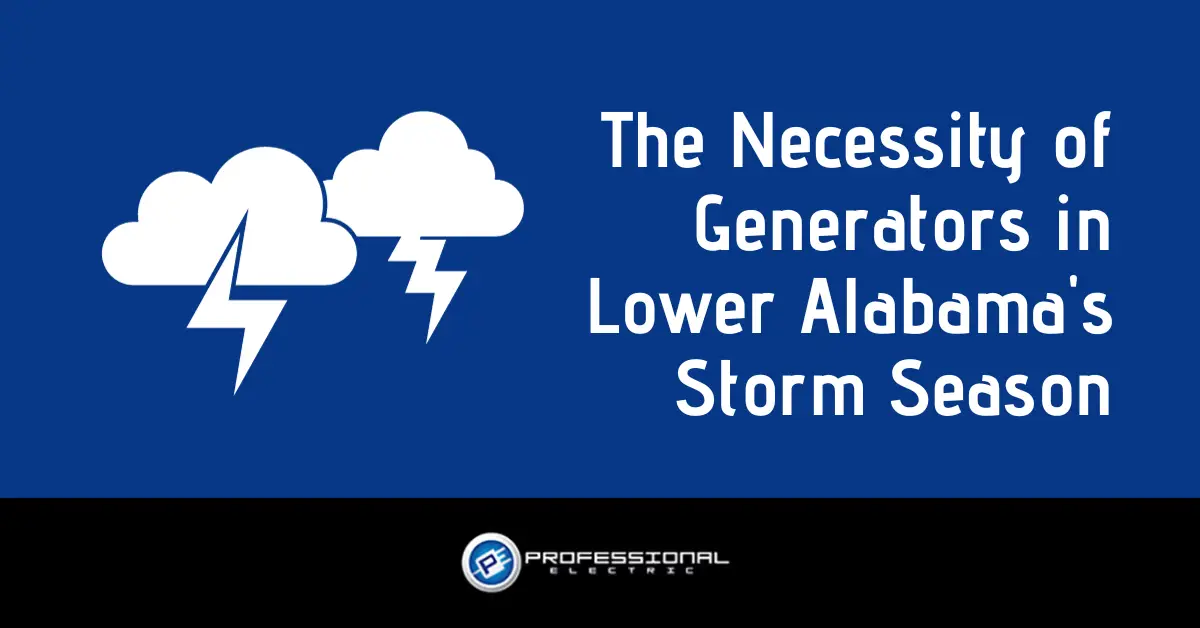The wind howls, rain pours, and suddenly you’re left in the dark. Yes, we’re talking about storm season in lower Alabama. While hurricane season officially ends soon, it’s crucial to remember that inclement weather doesn’t run on a schedule. As we navigate through turbulent times, one item rises to the top of the essential list—generators.
Keep the Lights On
Imagine you’re sitting at home, enjoying a warm meal, when a hurricane strikes and the power grid fails. What do you do? With a generator on hand, the answer is simple: keep going. Generators prevent discontinuity of daily activities or disruption of business operations by ensuring that your lights stay on, your refrigerator runs, and your essential electronics remain operational.
Health and Safety First
For those with medical conditions requiring electrically-powered equipment, a generator can be a lifesaver. During storms, emergency services may be stretched thin, making it imperative to have a backup power source to maintain medical devices, charge phones, and keep you connected to the outside world.
Business Continuity
If you’re a business owner, a generator isn’t just a luxury; it’s a necessity. Power outages can lead to lost revenue, reduced productivity, and a decline in customer trust. Having a reliable generator ensures that your business remains up and running, even when the world around you is chaotic. Similarly, for businesses with sensitive data, generators function as a reliable safety net.
Types of Generators
At Professional Electric, we offer a variety of generators to fit your specific needs:
Portable Generators: Lightweight and easy to move, portable generators are excellent for temporary power requirements.
Standby Generators: Installed permanently, these generators start automatically when a power outage occurs and can handle larger power loads.
Inverter Generators: Known for their fuel efficiency and quiet operation, inverter generators are ideal for small appliances and electronic devices.
Professional Electric Has You Covered
Choosing a generator can be overwhelming, but you’re not alone. At Professional Electric, we help you navigate through the various options, ensuring you pick the one that best fits your needs. Our experienced team handles everything from consultation to installation and maintenance.
In lower Alabama, we know that storms are part and parcel of our lives. While we can’t control the weather, we can control how prepared we are. With a quality generator, you’ll never have to worry about being left in the dark.
Stay safe and stay powered with Professional Electric. For more information on our range of generators and services, visit our website or give us a call today.



